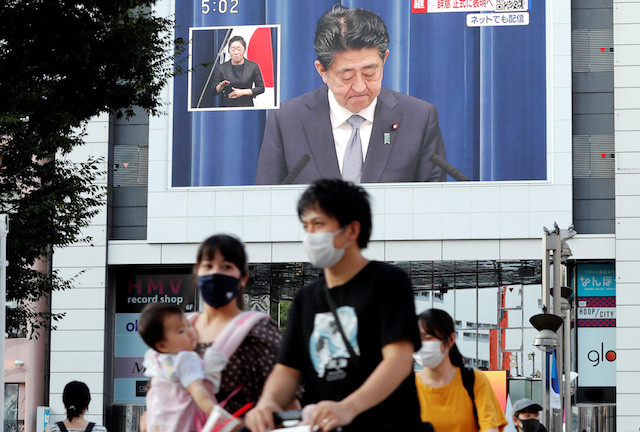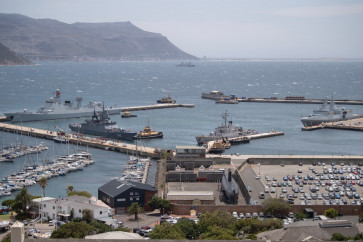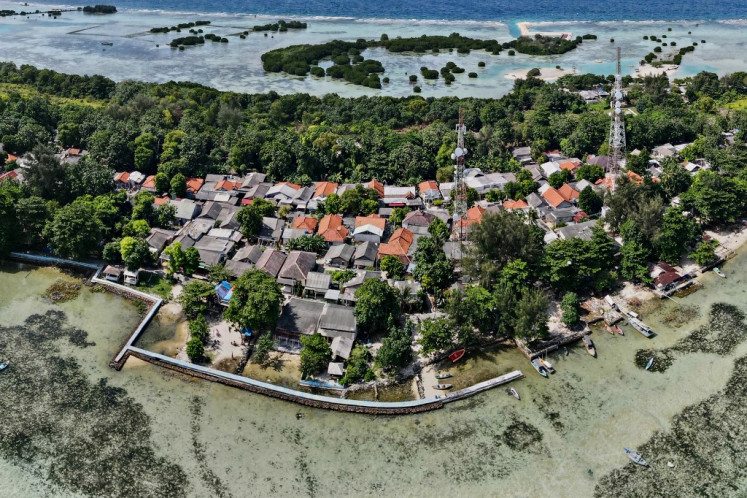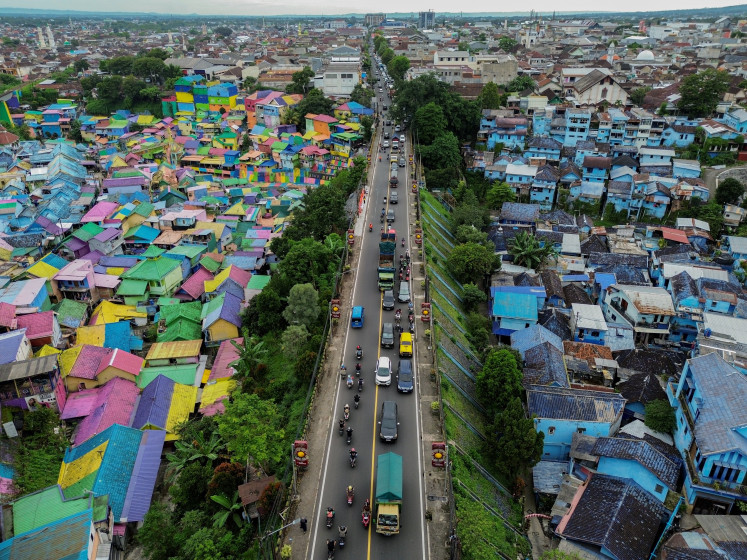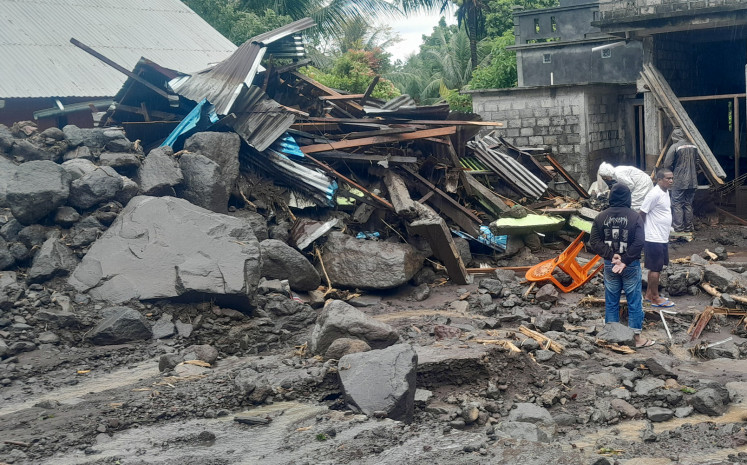Popular Reads
Top Results
Can't find what you're looking for?
View all search resultsPopular Reads
Top Results
Can't find what you're looking for?
View all search resultsShinzo Abe: From Jakarta’s MRT to global military ambitions
More people outside the world’s third-largest economy are realizing the increased strategic importance of Japan in the midst of the rivalry between China and the United States.
Change text size
Gift Premium Articles
to Anyone
J
apan will soon have a new leader to replace outgoing Prime Minister Shinzo Abe, who abruptly announced his resignation last week. The international community, including Indonesia, reacted cordially, partly because they were preoccupied by the COVID-19 pandemic and partly because Abe’s successor would come from the ruling Liberal Democratic Party (LDP), so significant changes to Japanese politics are unlikely.
But we should not forget that more people outside the world’s third-largest economy are realizing the increased strategic importance of Japan in the midst of the rivalry between China and the United States. Neighboring countries are keen to see Japan play a bigger role not just economically but also in security and diplomacy as anxiety rises over China’s growing assertiveness and the United States’ decreasing influence in the region.
But what about Indonesia? President Joko “Jokowi” Widodo seems to have no personal preference for Abe’s successor. Jokowi has only a few personal Japanese friends, including former PM Yasuo Fukuda, the president of the Japan-Indonesia Association (Japinda). As a pragmatic politician, Jokowi is concerned with keeping Japanese investment flowing into Indonesia and increasing Indonesian exports to Japan.
Under Abe, Japan’s investment and economic cooperation initiatives have won appreciation from the Indonesian public. Japanese companies treat local workers relatively well, and it is very rare to see labor strikes in Japanese-owned factories. Japanese investors, too, spark less controversy than their Chinese peers, who often bring a number of Chinese workers to the country as part of investment deals, although this difference can be explained by the shortage of workers in Japan.
In the field of infrastructure, which is the focus of Jokowi’s government, the role of Abe’s Japan was indispensable. The Japanese-constructed Jakarta mass rapid transit (MRT) has been popular since its official opening in March 2019. Late this year, the Japanse-funded Patimban seaport will begin operations. Located in Subang, West Java, the port is expected to alleviate the strained capacity of Tanjung Priok port in Jakarta. The new port will make use of Japan’s advanced technology and management, as the MRT does.
Japan is also a strong contender for the construction of the Jakarta-Surabaya high speed railways, although China is also eyeing the project.
From an international perspective, however, Abe was not able to manifest his political will, as evident in his inability to realize a plan to revise the nation’s pacifist constitution, which was drafted by Gen. Douglas MacArthur of the United States. Abe could not convince his nation or even his own party of the need for revision. Japanese people preferred the status quo.
China and South Korea strongly condemned the constitutional amendment plan, fearing a revival of Japan’s past imperial ambitions. It remains unclear if other Asian countries, such as the 10 member states of ASEAN, share such concerns, but a stronger Japan is perhaps a necessity given the meteoric rise of China economically and militarily.
Beijing’s increased assertiveness in the South China Sea is particularly alarming to the ASEAN neighbors that claim portions of the long-disputed waters. Unlike Vietnam, the Philippines, Malaysia and Brunei, Indonesia is not a claimant, but recent incidents suggest that an open clash with China in Natuna waters could be a matter of time.
ASEAN members have quietly expressed the need for outside powers, such as Japan, to counterbalance China’s actions in the region. In private conversations, Indonesian diplomats and military generals have shown growing support for the formalization of Japanese military power beyond self-defense.
“It is undeniable that Japan [should have] full military capacity now,” a senior government official said recently.
Many Asian countries were traumatized by the brutality of the Japanese military before and during World War II. Unlike Germany, which has made significant efforts to atone for its wartime actions, Japan is still internationally perceived as being half-hearted in its admission of guilt and in the provision of compensation for the victims of its military brutality.
From the geopolitical point of view, is it realistic to maintain the status quo? China’s military has steadily reached a global level of power, and this fact worries its neighbors, including ASEAN. Abe has failed to mitigate those concerns.
China has nuclear weapons, and it is just a matter of technicalities for Japan and South Korea to match that capacity. The three nations also have overlapping sovereignty claims. The region may have to expect the three to maintain the balance of power and forget the US. Regardless of the results of the US presidential election in November, Washington’s influence and power in the region is declining.
The objection of China and South Korea to Japan’s revision of its constitution is understandable and justifiable. Japan’s past military aggression is very hard to forgive. But smaller Asian nations have a long tradition of burying their hatchets.
Indonesia, of course, is hoping for a continuation of Japanese investment and economic cooperation after Abe. The country is competing with fellow ASEAN members that also offer a favorable investment climate and a large labor force to attract Japanese investors.
Whoever replaces Abe should lead Japan to a more significant geopolitical role. Perhaps this way, the nation can redeem itself for the painful history of its occupation in Asia.
--------
Senior editor at The Jakarta Post

